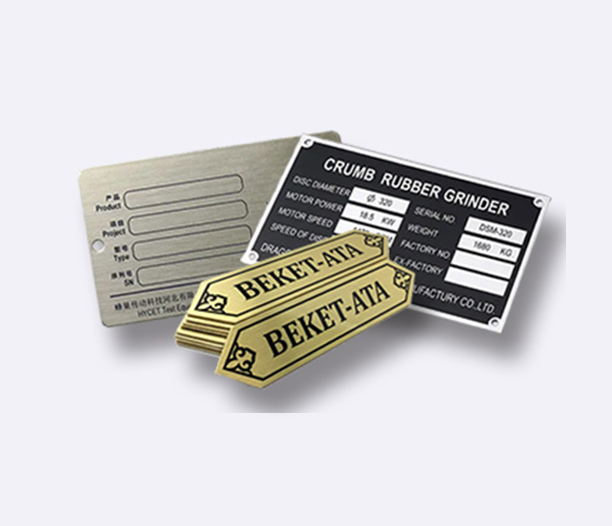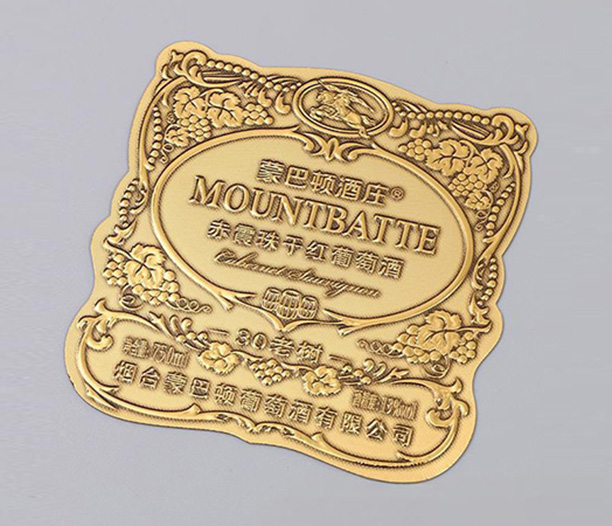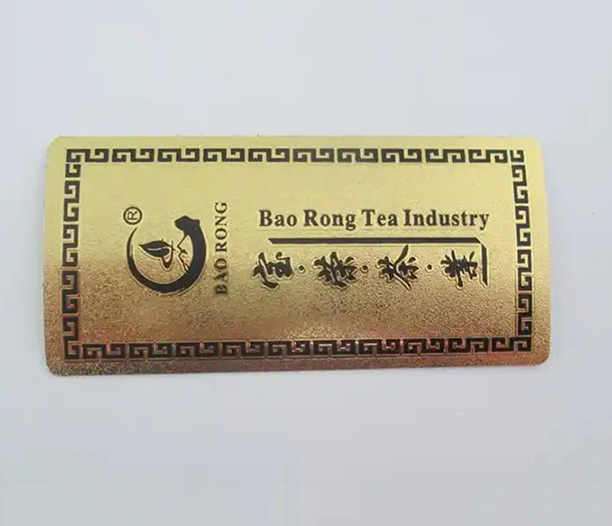In today's competitive market, businesses and individuals are constantly seeking ways to stand out, enhance professionalism, and ensure longevity in their products and assets. One effective solution that has gained significant traction is the use of personalized metal labels. These custom-made identifiers are not just simple tags; they represent a fusion of durability, aesthetics, and functionality. Whether for industrial equipment, consumer goods, or personal items, personalized metal labels offer a robust way to convey information, reinforce branding, and withstand harsh environments. In this article, we will delve into the multifaceted world of personalized metal labels, exploring their core aspects, benefits, and practical applications. By the end, you'll understand why investing in personalized metal labels can be a game-changer for your projects.
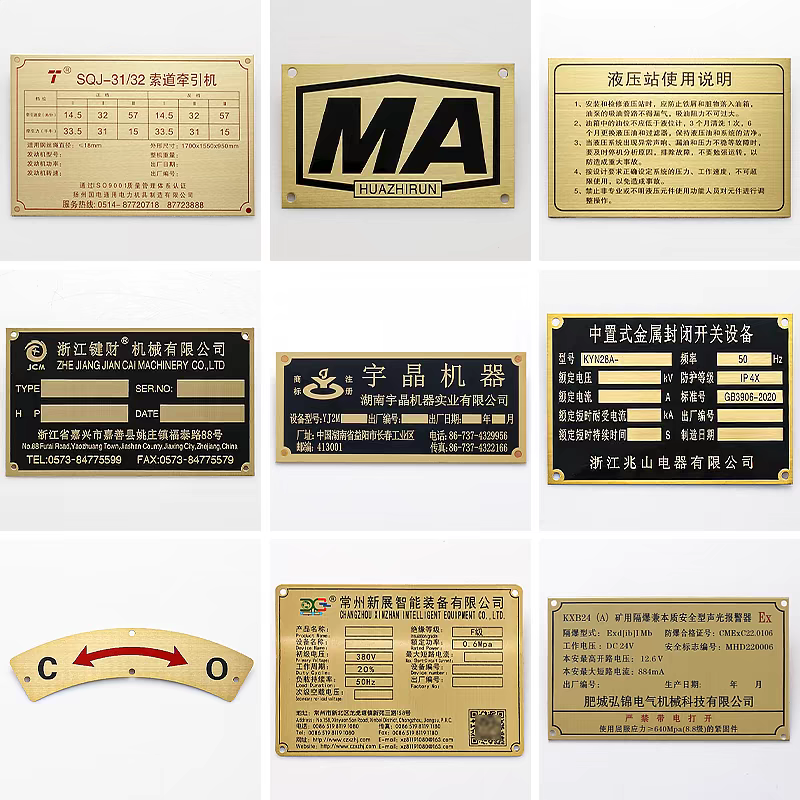
What Are Personalized Metal Labels?
Personalized metal labels are custom-designed tags or plates made from various metals, such as aluminum, stainless steel, brass, or zinc, that are engraved, etched, or printed with specific information like logos, serial numbers, barcodes, or text. These labels are tailored to meet individual or organizational needs, allowing for unique designs that reflect brand identity or functional requirements. Unlike generic labels, personalized metal labels are crafted through processes like laser engraving, chemical etching, or stamping, ensuring precision and durability. They serve as permanent markers that resist fading, corrosion, and physical damage, making them ideal for both indoor and outdoor use. The customization options are vast, including choices in size, shape, color, and finish, which enable users to create labels that align perfectly with their vision. As a result, personalized metal labels have become a popular choice across industries, from manufacturing and healthcare to retail and personal use, providing a reliable means of identification and promotion.
Applications of Personalized Metal Labels
The versatility of personalized metal labels makes them suitable for a wide range of applications. In industrial settings, they are commonly used for asset tracking, machinery identification, and safety warnings, thanks to their ability to endure extreme conditions like high temperatures, moisture, and chemicals. For instance, in the automotive industry, personalized metal labels help mark parts with VIN numbers or specifications, ensuring traceability and compliance. In the consumer sector, these labels add a touch of elegance to products such as electronics, jewelry, and appliances, enhancing brand perception and customer loyalty. Additionally, personalized metal labels are employed in military and aerospace for critical component labeling, where accuracy and durability are paramount. Even in personal contexts, like custom gifts or pet tags, they offer a unique way to commemorate events or provide essential information. The adaptability of personalized metal labels means they can be integrated into nearly any scenario requiring reliable, long-lasting identification.
Benefits of Using Personalized Metal Labels
One of the primary reasons for the growing popularity of personalized metal labels is their extensive benefits. First and foremost, they offer exceptional durability, capable of resisting abrasion, UV rays, and corrosive substances, which extends their lifespan compared to paper or plastic alternatives. This makes personalized metal labels a cost-effective investment over time, as they reduce the need for frequent replacements. Secondly, they provide a professional and high-end appearance, which can elevate a brand's image and instill confidence in customers. The customization aspect allows for creativity in design, enabling businesses to incorporate logos, colors, and fonts that reinforce their identity. Moreover, personalized metal labels are highly versatile in terms of application methods—they can be adhered with strong adhesives, riveted, or screwed into place, ensuring secure attachment. From an environmental perspective, many metals used in these labels are recyclable, aligning with sustainable practices. Overall, the combination of resilience, aesthetics, and functionality makes personalized metal labels an invaluable tool for various needs.
How to Customize Your Metal Labels
Customizing personalized metal labels involves a straightforward process that begins with defining your requirements. Start by determining the purpose of the label—whether it's for branding, identification, or compliance—as this will influence the design elements. Next, select the appropriate metal material based on factors like environment exposure and budget; for example, aluminum is lightweight and corrosion-resistant, while stainless steel offers superior strength. Then, choose the customization method: laser engraving provides precise, permanent marks, whereas etching creates subtle, elegant designs. Digital printing allows for full-color graphics, making it ideal for vibrant logos. When designing the label, consider elements like text size, graphics, and finish options (e.g., brushed, polished, or matte). Many suppliers offer online tools or consultations to help visualize the final product. It's also crucial to review samples or prototypes to ensure accuracy before mass production. By following these steps, you can create personalized metal labels that perfectly match your specifications and achieve your desired outcomes.
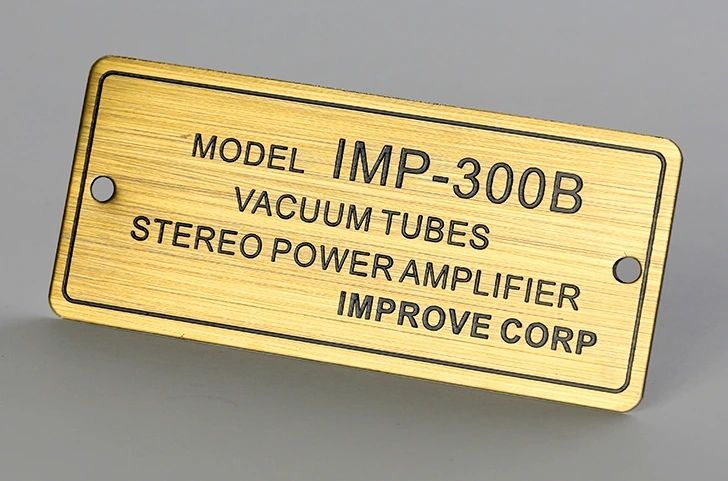
Choosing the Right Material for Personalized Metal Labels
Selecting the correct material is a critical aspect of creating effective personalized metal labels, as it impacts durability, cost, and suitability for specific environments. Common materials include aluminum, which is lightweight, affordable, and ideal for indoor use or mild outdoor conditions. Stainless steel, on the other hand, is renowned for its strength and resistance to corrosion, making it perfect for harsh industrial or marine settings. Brass offers a classic, decorative appeal with good durability, often used for plaques or high-end products. Zinc alloys provide a balance of affordability and performance, with excellent molding capabilities for complex shapes. When choosing, consider factors like exposure to elements, required lifespan, and aesthetic preferences. For instance, if you need labels for outdoor equipment, stainless steel might be the best choice due to its weather resistance. Consulting with a professional supplier can help you navigate these options and select a material that aligns with your needs for personalized metal labels, ensuring optimal performance and satisfaction.
Trends and Innovations in Personalized Metal Labels
The field of personalized metal labels is continuously evolving, driven by technological advancements and changing market demands. Recent trends include the integration of QR codes or NFC chips into metal labels, enabling interactive experiences where users can scan for additional information or track items in real-time. Eco-friendly innovations are also gaining traction, with more companies opting for recycled metals and sustainable manufacturing processes. Additionally, advancements in laser technology have made it possible to create intricate designs and micro-engravings on personalized metal labels, expanding their use in sectors like electronics and medical devices. Another trend is the rise of on-demand customization, where businesses can order small batches of labels quickly and affordably, thanks to digital printing and automated systems. These innovations not only enhance the functionality of personalized metal labels but also make them more accessible and adaptable to modern needs, ensuring they remain a relevant and valuable solution in the years to come.
In summary, personalized metal labels represent a powerful tool for anyone looking to enhance identification, branding, and durability. From their robust construction and wide-ranging applications to the ease of customization and material choices, these labels offer numerous advantages that can benefit businesses and individuals alike. By understanding the key aspects covered in this article, you can make informed decisions about incorporating personalized metal labels into your projects. As technology and trends continue to shape this industry, the potential for innovation in personalized metal labels remains vast, promising even more tailored and efficient solutions in the future.
Frequently Asked Questions
Q1: What are the most common metals used for personalized metal labels?
A1: The most common metals include aluminum, stainless steel, brass, and zinc alloys. Aluminum is popular for its lightweight and corrosion-resistant properties, while stainless steel offers superior durability for harsh environments. Brass provides an elegant finish, and zinc alloys are cost-effective for complex designs.
Q2: How long do personalized metal labels typically last?
A2: Personalized metal labels can last for decades, depending on the material and environment. For example, stainless steel labels in outdoor settings may endure over 20 years without significant wear, while aluminum labels in indoor use can maintain their appearance for similar periods with proper care.
Q3: Can personalized metal labels be used outdoors?
A3: Yes, many personalized metal labels are designed for outdoor use. Materials like stainless steel and aluminum with protective coatings resist weather, UV rays, and corrosion, making them suitable for applications such as industrial equipment, outdoor signs, and marine environments.
Q4: What customization options are available for personalized metal labels?
A4: Customization options include various sizes, shapes, colors, finishes (e.g., brushed or polished), and engraving techniques. You can add text, logos, barcodes, serial numbers, and even graphics through methods like laser engraving, etching, or printing to meet specific needs.
Q5: Are personalized metal labels expensive?
A5: The cost of personalized metal labels varies based on factors like material, size, quantity, and customization complexity. While they may have a higher initial cost than plastic or paper labels, their durability and long lifespan often make them a cost-effective investment by reducing replacement frequency and maintenance costs.



